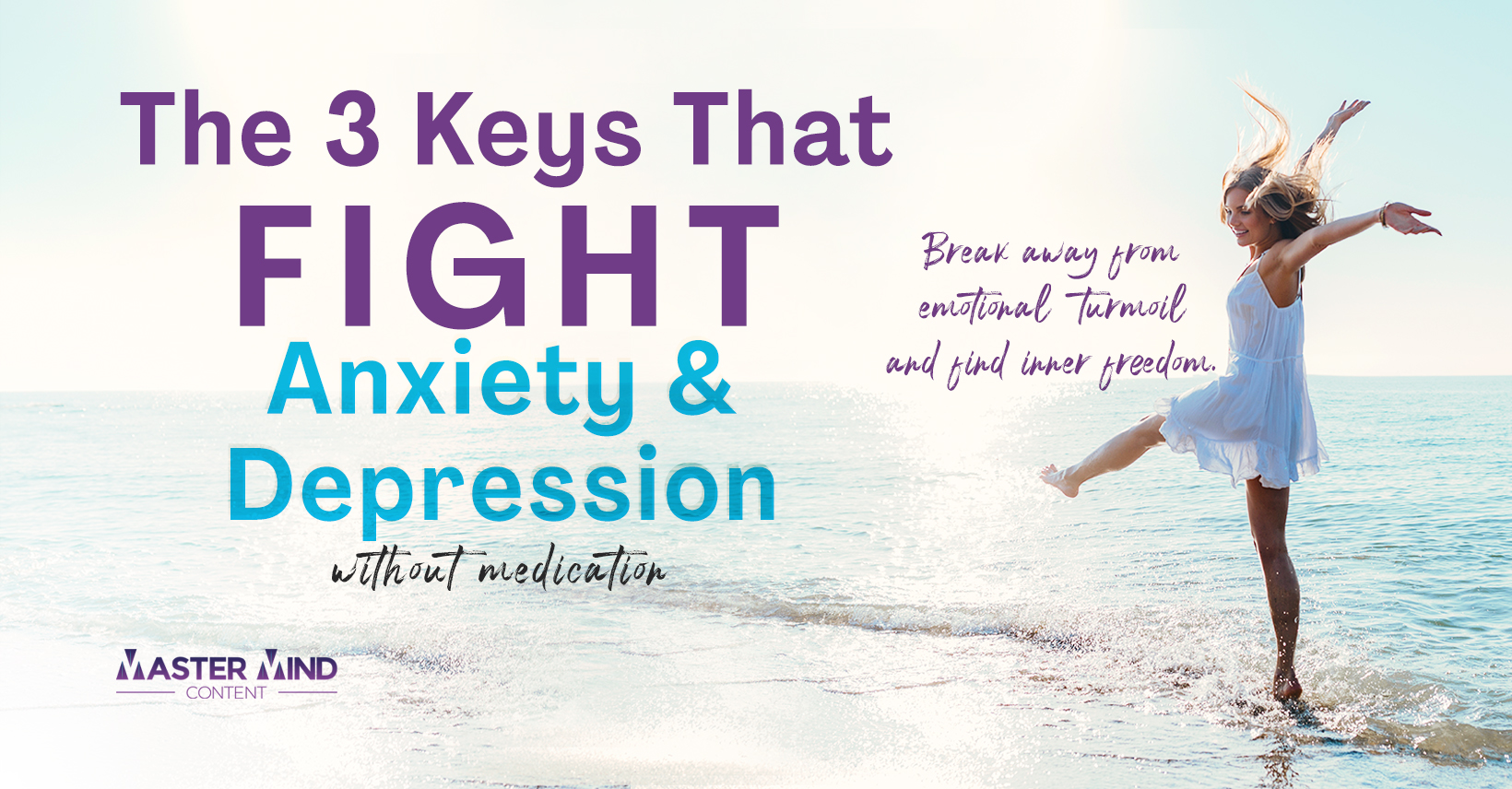
I should know, I tried both and the natural ways to fight anxiety and depression won hands down. The key is to adopt a healthy lifestyle, a positive mindset and integrate missing aspects of your personality that are buried in the unconscious.
It’s actually quite bewildering that some physicians still insist on handing out anti-depressant medication to treat patients with anxiety and depression. Having said that, mental health practitioners get paid by pharmaceutical companies. So it stands to reason.
“The Association of the British Pharmaceutical Industry (ABPI), reveals that £340.3m was paid by companies to UK healthcare professionals and organisations in 2015.”
The Pharmaceutical Journal
Oh yeah, your pill-pushing doctor cares more about lining their pockets than fixing your anxiety.
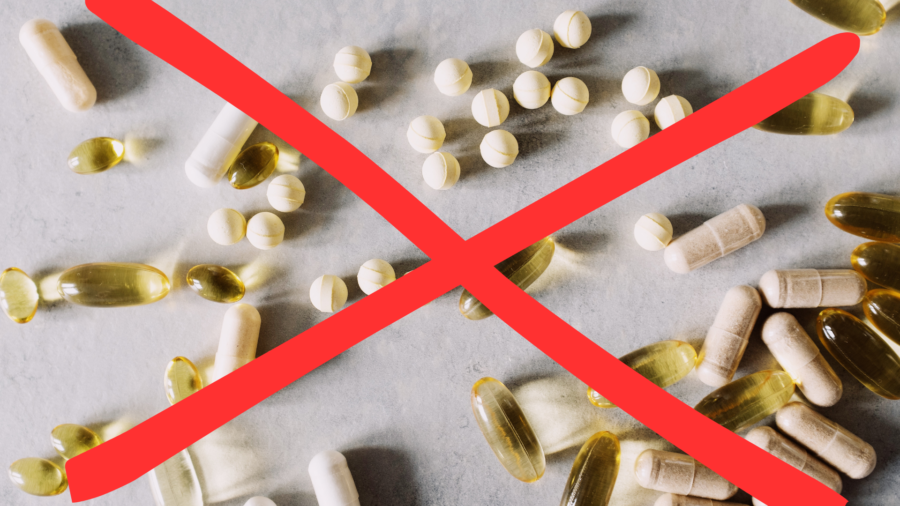
What makes matters worse, in my mind at least, is that anti-depressants are not only ineffective but they increase the risk of side effects.
Not that you’ll read that in mainstream media, drug trials or studies. They’ve also been paid off by the pharmaceutical companies they promote. But under-reported studies examining anxiety and depression do exist. Meta-analyses show there is little difference between the positive impact of antidepressants and a placebo.
Studies ultimately indicate that your psychological health is the most natural way to effectively fight anxiety and depression.
My own research backs this up. I asked participants in an Anxiety Support Group on Facebook how long they’d been taking medication.
The response was years: 10 years, 20 years, 30 years, 40 years and one over 50 years.
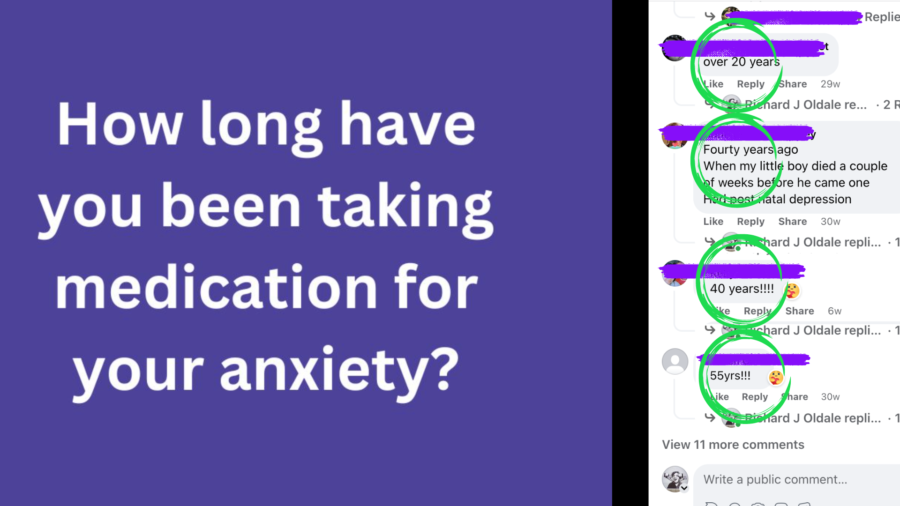
The drugs don’t work.
What’s more, they encourage you to mask the symptoms and hide your problems. Anxiety and depression emerge to inform you that something is not right with your life.
Something needs to change!
“Depression is like a woman in black. If she turns up, don’t shoo her away. Invite her in, offer her a seat, treat her like a guest and listen to what she wants to say.”
~ Carl Jung
Anxiety and depression are not the same per se, However, they are closely related. Anxiety can lead to depression and vice versa. People that carry chronic anxiety experience periods of depression and anxiety is a common symptom in depressive disorders.
If you know or suspect you have one or the other, it is likely that you will develop both. It’s also a smart idea to address the issues as soon as possible. When anxiety and depression are left unaddressed they can become life debilitating.
Typical Symptoms of Anxiety and Depression
Anxiety and depression can also be the precursor for other chronic diseases and mental health conditions including cancer, diabetes, heart disease, and stroke.
“The World Health Organization predicts that by the year 2030, depression will result in more years of life lost to disability than any other illness.” [1]
~ National Library of Medicine
Anxiety can start at any time in life. For a lot of people, it starts in childhood and adolescence. It’s no surprise that a record number of teenagers are reporting feeling anxious and depressed.
Given that anti-depressants are not the most effective strategy, here are 10 natural ways to fight anxiety and depression. For most people, the cure is a change in lifestyle and mindset.
Learning how to reduce the symptoms of anxiety and depression can be the first step to overcoming the affliction.
Avoiding alcohol, drugs, caffeine and cigarettes is a good start.
Substance abuse can worsen anxiety and depression symptoms and can have negative effects on your long-term mental health.
Alcohol is a depressant. Caffeine is a stimulant. Drugs are a combination of the two and cause downers. All of them have been linked as contributing factors to anxiety and depression.

While alcohol and drugs can provide temporary relief from anxiety and stress, the long-term consequences are more damaging than the short-term reprieve.
Alcohol and drugs are more likely to increase anxiety and exacerbate symptoms. [2] It’s a downward spiral. A dependency on drugs chips away at whatever remaining self-worth and self-respect you have.
Nurturing self-worth and self-respect, by the way, are natural ways to effectively fight anxiety and depression.
What’s more, substance abuse typically leads to disrupted sleep patterns — and according to the medical practitioners Google promote on the first page, sleep is one of the top 10 ways to fight anxiety and depression.
Studies show that a contributing factor to anxiety and depression is a lack of self-esteem. [3] On the flip side, deep and meaningful connections nurture self-esteem and improve your health and well-being. [4]
In contrast, hanging out with people that do not give you any respect or value your opinion, contributes to your anxiety. Especially if you have social anxiety or criticism anxiety.
“If you are surrounded by people who cross their eyes and look with disgust up at the ceiling when you are in the room, when you speak, when you act and react, then you are with the people who douse passions—yours and probably their own as well. These are not the people who care about you, your work, your life.”
~ Clarissa Pinkola Estes, Ph.D, Women Who Run With Wolves
Having a support system of like-minded people who understand you can provide a sense of belonging and help alleviate feelings of isolation. Talking to like-minded people helps to validate your view of the world, experiences and feelings.
This can help to reduce feelings of shame or guilt and help you feel more understood — emotional conditions that have been linked with anxiety and depression. [5]
Joining a group of like-minded people motivates you to get out of the house. If you have made yourself a hermit, you’re sinking deeper into depressive moods and increasing your risk of a more serious illness.
Being motivated to go places also encourages movement — and exercise is another top-rated strategy for fighting anxiety and depression that medical professionals suggest.

I have no arguments with that. Although I have narrowed it down to a single activity rather than the broad brush “physical activity”.
Do you want to know what it is?
Yep, walking.
Not very exciting or revolutionary, I know, but walking is a low-entry barrier which most people are doing every day anyway. So why is walking one of the natural ways to effectively fight anxiety and depression?
Well, first of all, people that are carrying anxiety and depression don’t typically have a great deal of get up and go. You’re also more likely to procrastinate and feel overwhelmed by the gym or spinning class.
And team sports invite anxiety because you’re afraid of making a mistake or looking foolish.
But walking. You’re doing that anyway. So just walk further — and faster. Here’s the kicker. You get more benefits from brisk walking.
Come on, you can do this!
People with anxiety and depression have low levels of endorphins, naturally occurring neurotransmitters that make you feel good about yourself. [6] Thus endorphins are natural ways to effectively fight anxiety and depression.
You don’t need anti-depressants to change your brain chemistry. You just need to get your ass off the couch and go for a long, brisk walk. Ideally in nature. Green spaces are shown to lift depressive moods. [7]

When you feel better within yourself – which endorphins deliver – you’re more inclined to adopt a positive attitude towards life. By promoting positive thinking, exercise helps you to eliminate your ingrained bias towards negative self-talk that is associated with anxiety and depression.
There is also another physical benefit. And this is where brisk walking comes to the forefront. When you breathe more deeply, you get more oxygen to the brain.
Higher oxygen levels in the brain improve cognitive function which helps you to concentrate and focus for longer — counteracting one of the symptoms of anxiety and depression. You will also be more productive which can help to nurture confidence and self-esteem.
Speaking of which, let’s talk about inner security. For me, overcoming insecurity was one of the keys to fighting anxiety and depression.
Insecurity is a fundamental factor to anxiety — on a number of levels. If your basic life needs are not being met, anxiety levels are more likely to increase.
Studies show that anxiety and depression are high among individuals that have food insecurity, housing insecurity and financial anxiety [8]. Abraham Maslow’s hierarchy of human needs indicates that food, housing, and clothing need to be fulfilled before you are motivated to attain the next level of security.
Most people with insecurity issues fall into the second and third categories of Maslow’s Theory of Human Motivation; financial security, emotional security and, thirdly, acceptance — friendship and intimacy.
As mentioned above, taking care of yourself physically and emotionally helps to fight anxiety and depression. But as I explain in the Master Mind Content Anxiety & Depression Program, a significant part of overcoming your condition is changing your mindset. Your psychological health involves several natural ways to effectively fight anxiety and depression.
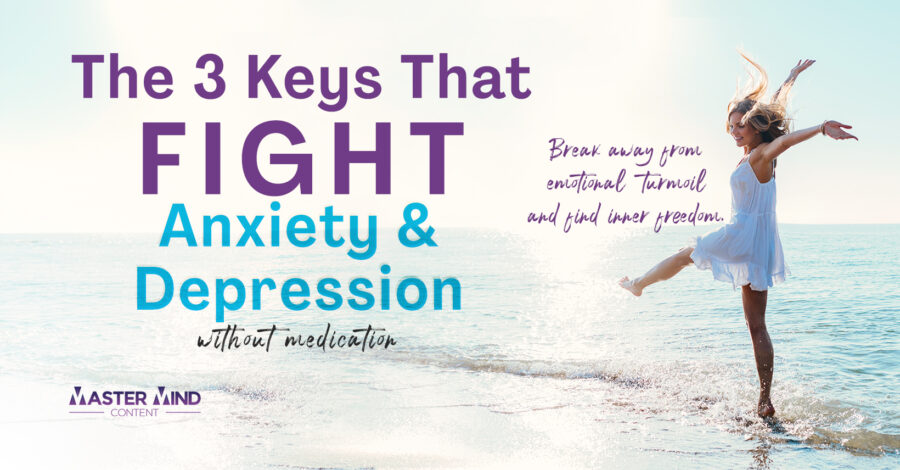
One of the keys to addressing insecurity is to use a selection of mindset tools. For example, the Mind v Reality tool we offer in the Anxiety and Depression Program enables you to compare the story in your head (which is usually dramatic fantasy or illusion) against the most likely reality — which is usually closer to the truth.
Self-awareness plays a significant role in healing all types of mental disorders, not just anxiety and depression. When you understand the reason why you think, feel and act in a certain way, it can pave the way to adopting a healthy lifestyle and mindset that produce positive outcomes.
Expanding conscious awareness enables you to see the bigger picture in your environment. This helps to nurture your understanding of the world around you, where you fit in and the value you offer.
All this builds into an accumulation of self-confidence and higher levels of self-esteem, which is a key contributor and one of the most powerful natural ways to effectively fight anxiety and depression.
Setting achievable goals can help improve motivation and give you a sense of purpose. This is a strategy that can be used to fight anxiety and depression by providing structure to your life and leaving you with a sense of accomplishment.
People that lack self-esteem often have overwhelming feelings of helplessness which exacerbates anxiety. This can be offset by achieving goals that give your self-confidence and self-esteem a leg up.

The goals you set should be achievable and realistic. Feel free to start small and build on your successes little by little. But celebrate the small victories. Small victories accumulate into a larger store of energy that can be used to help transform feelings of depression.
Remember, if de-pression is a result of re-pression, you need to confront challenges your ego is resisting. The more times you repeat an experience, the easier it is to achieve greater and greater challenges moving forward.
The eminent psychoanalyst Carl Jung recognised that a one-sided attitude represses conscious aspects of your personality. When your instincts are repressed as a child, you tend to suppress them as an adult. And that causes a big problem.
“The dammed-up instinct-forces in civilized man are immensely more destructive, and hence more dangerous, than the instincts of the primitive (undeveloped ego), who in a modest degree is constantly living his negative instincts.” (brackets are mine) [9]
~ Carl Jung, CW6, Psychological Types
To develop as a person, and ultimately to feel good about yourself, you have to engage with life and become an active participant. So set achievable goals. If you become inflated and overly ambitious, self-doubt can creep in which will exacerbate your anxiety. And failure could push you back down into the doldrums.
There are times when self-soothing can help you to adopt a different mindset that fights anxiety and depression.
Before I explain what practising self-compassion is, let’s first establish what it’s not.
There seems to be a misconception about self-compassion in my opinion — by writers that don’t understand how consciousness works.
Advice like “actively alleviate yourself from suffering” and practice “self-kindness instead of self-criticism” is not quite on the mark.
I’ll explain why.
Self-criticism comes from the voice within. Actually, it comes from the Self — which Sigmund Freud called the Super-ego.
Hence, Self criticism.
As I mentioned above, in order to manage your environment and handle the challenges you face, you have to program the skills, attitudes, beliefs and emotions into the subconscious mind. The ego responds to subconscious programs.
If you don’t have a program for your ego to do something, your Self will say, ‘you can’t do this, you’re no good at this, this is stupid.’
If these words sound familiar, rather than wallowing in misery and confirming to the ego that you are no good, ask yourself, what skills and knowledge do I need to adopt so that I can do this, so that I am good at this and so this is not stupid.
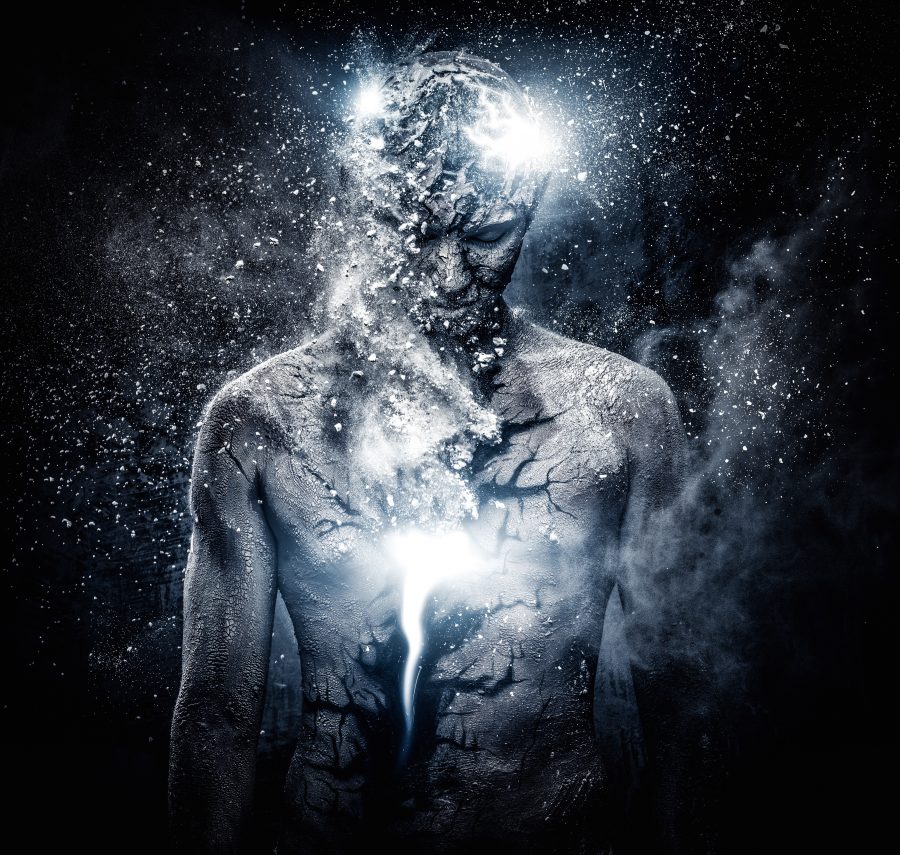
This is actually something the pharmaceutical industry recognises about depression — it is a symptom of an energy imbalance. However, the reason why anti-depressants don’t work for most people is that balancing energy is an individual endeavour.
It requires an internal conversation which brings the Self and the ego into agreement.
I’ve written an in-depth article which explains the Jungian concept of the Self-ego axis. To heal depression and other repressed aspects of your personality, you need to understand the relationship between the Self and the ego.
To give you a briefing:
“The Self is the ordering and unifying center of the total psyche (conscious and unconscious) just as the ego is the center of the seat of subjective identity whilst the Self is the seat of objective identity. The Self is thus the supreme psychic authority and subordinates the ego to it.” [10]
~ Edward Edinger, Ego and Archetype
Sigmund Freud also noted that an unconscious part of us, which he called the Superego, makes the ego feel guilty. But it does this because the Self wants the ego to become consciously aware of parts of the personality that are being ignored.
The experiences you have in life are the result of how you produce, store and project energy. This is determined by the thoughts, emotions and behaviours you do express versus the thoughts, actions and behaviours you don’t express.
When you suppress emotions or your instinctive nature, you are not allowing parts of the Self to express itself. Self-criticism is the Self informing the ego that you need to develop aspects of your nature.
Practising compassion, therefore primarily involves being respectful to the Self. Listen to the “criticism” (advice) your ‘Higher Self’ is offering because this is your True Nature. You have to allow the instinctive side of human nature to be given expression.
“We spend so much time trying to understand the world and ourselves intellectually that we have virtually cut ourselves off from the spontaneous, guilt-free experience of our emotional and irrational natures.” [11]
~ Robert Johnson, Ecstasy
When the Self is criticising you, it’s not actually criticising you but trying to draw your attention to hidden talents, beliefs, attitudes and emotions that you have in your locker. You just haven’t used the key yet.
That’s not actually your fault. This is where the self-soothing talk comes in. But that’s only one-half of practising self-compassion. You still have to develop the parts of your personality the Self is trying to draw your attention to. And if you continue to ignore it, the Self will continue to criticise you.
You must stop denying archetypal energies to be expressed. Jung said to heal complexes and diseases there has to be a reconciliation between the unconscious mind and the conscious mind; the Self-ego axis. That involves a dialogue which brings the opposing energies into harmony.
“The feelings of boredom and apathy from which city dwellers today often suffer is only temporarily offset by such artificial excitements as adventure films and time-killing “amusements”. Jung stressed that the only real adventure remaining for each individual is the exploration of his own unconscious. The ultimate goal of such a search is the forming of a harmonious and balanced relationship with the Self.” [12]
~ Marie-Louise von Franz, Carl Jung: Man And His Symbols
Start by observing your thoughts, emotions and actions and identifying where they are creating problems in your life.
Practising compassion also requires you to be kind to yourself when you make a mistake or something goes wrong. Instead of criticising yourself, question what could you do better.
The Self has the answers which is why it criticises the ego. Mistakes are designed to help you become consciously aware that there is room for improvement.
A common trait in patients with anxiety and depression is negative thinking. This can happen for several reasons, namely because fear-based programs in your subconscious rise to the surface more frequently, and low energy levels influence feelings of hopelessness.
If you find yourself doing any of the above, stop for a moment, and evaluate the evidence. Ask yourself whether there is any evidence to support the negative thought, negative emotion or negative reaction.
Oftentimes, there isn’t. Negative thoughts are based on assumptions or generalisations rather than facts. The Mind v Reality Tool in the Master Mind Content Anxiety and Depression course helps you to apply perspective and take your foot off the negative pedal.
One of the issues that contribute to anxiety and depression is living in your head. This was certainly the case for me. When you live in your head, the intellect has autonomy over instincts.

And the intellect cuts you off from your feelings by way of disassociation. Emotions that are re-pressed and continuously sup-pressed manifests as de-pression.
Negative thinking can occur in several ways. Research shows that pessimistic attitudes are hardwired the first time you have a bad experience with something. It can also be inherited by negative parents. Negative thinking, therefore, is a default program. [13]
Negativity bias typically emerges in infancy. As a baby, you picked up cues such as facial expressions and tone of voice from the people in your environment. If you spent time around negative adults in toxic environments, your neural pathways were programmed with negative thought patterns.
Negative thinking brings up feelings of fear and anxiety. When you expect a negative outcome, you have a tendency to avoid opportunities and thus deny yourself the possibility of success because the fear of failure outweighs the potential gain.
The more you avoid life, the less archetypal energies you develop. Ultimately, your ego remains in a child-like status because it doesn’t have a program to deal with your environment. Over time, your anxiety and depression worsen.
“This man-child is the victim of a serious affliction. If he is not helped, his life will slowly turn sour. He is not mentally ill, nor is he incapable of functioning in society. He is, however, very sad. He sees life as a waste of time. He tries hard to camouflage his sadness with gaiety and sporting fun. In many cases his trickery works, at least for a few years.” [14]
~ Dan Kiley, Peter Pan Syndrome, Men Who Have Never Grown Up
Negative thinking is not only a causal factor of anxiety and depression, it gradually drives you to deeper levels of despair. Allow negative thinking to take charge of your decision making and you will become increasingly divorced from reality; deluded and demented.
A useful tool you can use to help combat negative thinking in the Master Mind Content Anxiety and Depression program is the reframing tool. This prompts you to look at situations from a different angle and consider alternative explanations which are grounded in rationale and logic rather than fantasy and illusion.
The capacity for healthy reasoning proves a healthy mindset and is one of the natural ways to fight anxiety and depression.
Confronting your fears is a key strategy for overcoming anxiety because it helps you to develop your ego — and the ego is important for helping you to manage everything life throws at you.
“While it is sometimes assumed in depth psychology that the Ego is secondary in importance to the unconscious, the Ego is in fact vital to our survival. It is only when it is possessed by, identified with, and inflated by another energy form — an archetype or complex (an archetypal fragment like the Tyrant) — that it malfunctions. Its proper role is to stand back and observe, to scan the horizon, to monitor the data coming in from both the outside and the inside and then, out of its wisdom – its knowledge of power, within and without, and its technical skill in channeling – make the necessary life decisions.” [15]
~ Robert Moore, Douglas Gillette, King, Warrior, Magician, Lover
When you avoid things that make you feel anxious or depressed, it can reinforce your fears and negative beliefs. Remember, the experiences you have in life programs your subconscious to have more of those experiences.
And this puts people that suffer from chronic anxiety in a state of paradox. On the one hand, you need to face things the ego is resisting, but when you do your anxiety levels go up.
The ego gets anxious because it doesn’t have a program that informs it how to handle a situation in your life. It needs the experience to develop the program.
Subsequently, avoidance is not an option. Therefore, when you face your fears, you need a strategy that will enable you to combat the anxiety you feel.
Again, this comes down to mindset. Most challenges you face that make you anxious can be put right by changing your attitude towards something. Reframing and the Mind v Reality tool in the Master Mind Content Anxiety and Depression Program work for this.
Also, start small and build up your confidence. Create a plan for how you will confront your fears and incrementally take a step up towards the bigger challenges.

One of the key tips is: don’t fret about things that are out of your control. There is a solution to every problem.
The life coaches at Master Mind Content work with you to address your challenges and find solutions. Sometimes the resolution is practical, and other times, the right approach is to reframe your mental status so that you can work to implement practical strategies that achieve positive outcomes.
This was a biggie for me. In my teens and 20s, I wasn’t on the right path, and although I had a job I was engaged in, I was growing more and more restless. Little did I realise that it was my career choice that was making me restless — until that was shown to me (which is a story for another day).
The Austrian neurologist, psychiatrist and philosopher, Viktor Frankl said that neurosis is caused by a lack of meaning and purpose in your life. [16] If you’ve nothing to get out of bed for in the morning, then there is nothing to get excited about.
Purpose and meaning fuel your passion. Passion is a vital energy that gives you the capacity to engage with life, feel your emotions and drive you to success. The libido that drives passion is Love. The opposite of love is fear. Depression is a symptom of fear.
Again, I will come back to my earlier point. De-pression is caused by re-pressing aspects of your personality. You have to express consciousness in order to give the whole personality life.
“When the experience of the static masculine has been well-proportioned, the compensatory experience of the dynamic feminine will be well-proportioned. The ego personality flows naturally with the dynamic feminine toward reaffirmation of its being in the static feminine as a natural developmental sequence. When the experience of the static masculine has been excessive, the compensatory experience of the dynamic feminine will be excessive, and there will be a tendency toward a fixation on this axis and an inability or resistance to an experience of the static feminine and a shift to the other axis. [17]
~ Gareth Hill Ph.D, Patterns of Immaturity and the Archetypal Patterns of Masculine and Feminine
It’s worth noting then that the opposite of life is death. If you are not giving the buried aspects of your personality the chance to live, you become dead inside. The energy is stagnant.
In esoteric symbolism, water is a symbol of energy. When water becomes stagnant it becomes a breeding ground for dangerous diseases. The same is true for the body when your energy becomes stagnant.
“It is a fact that if an impulse comes up and is not lived out, then it goes back down and tends to develop anti-human qualities.” [18]
~ Robert Johnson, Ecstasy
In his book Freedom: The End of the Human Condition, the Australian biologist Jeremy Griffith explains that being human requires nurture. Our innate nature is “cooperative and loving.” [19]
If you’re not living from a love-based centre, you’re living from a fear-based centre. Fear destroys life.
Find your purpose in life and you have a reason to live.
Self-acceptance plays a huge role in self-development in general. This is not just a natural way to effectively fight anxiety and depression but should be a pillar of life, period.
When you accept yourself as you are, including your flaws and imperfections, it helps you to build a stronger sense of inner security.
Overcoming insecurity is one of the three keys you will learn in the Master Mind Content Anxiety and Depression Program. Insecurity is an outcrop of low self-esteem.
A typical symptom of insecurity is a limiting belief that you are not good enough. The seed may have been planted as an infant when your parents did not give you the emotional comfort you needed. Or it could be that you were reprimanded for showing instincts that are not considered acceptable; i.e you were yelled at or smacked when you got angry.
Feelings of insecurity can also emerge — or be reinforced — in school. This is particularly true of children that did not perform as well as the other kids in your class.
The tricky teenage years and early adulthood, when you become interested in romantic relationships, can further put a serious dent in your confidence and self-esteem. Feelings of inadequacy can develop into an inferiority complex which puts you at greater risk of becoming anxious and depressed. [20]
If you have an introverted nature, times of despair make you sink further into your world of fantasy. Your nervous system develops a coping mechanism by means of disassociation. [21]

Although evolution’s intention behind dissociation is to protect your emotional well-being, the irony is that the nervous system causes damage to your mental and physical health over the long term.
It seems as though coping mechanisms are a delaying tactic. But this evolutionary strategy is only useful if mankind is self-aware and knows how to evolve the conscious personality.
“The essence of Jung’s philosophy of life: Man becomes whole, integrated, calm, fertile, and happy when (and only when) the process of individuation is complete, when the conscious and the unconscious have learned to live at peace and to complement one another.” [22]
~ John Freeman, Carl Jung, Man And His Symbols
I explain how the nervous system ‘dissociates’ from reality as a protection mechanism in the article, How The Nervous System Works which is available in the VIP members section for customers.
Understanding how the body and mind work can help you to reach self-acceptance quicker because you recognise the times in your life when consciousness was not given expression, i.e. when you were disciplined for getting angry.
The archetypes tool that Master Mind Content provide in our Self-Development courses, shows you which qualities need to be given expression. It shows you how to identify qualities that are programmed in your subconscious and archetypal energies that need to be recognised and given expression. These are the qualities you are repressing.
Here’s an example:
“If a man suppresses his feminine features, the consequence is that he unconsciously becomes feminine. This takes the form of irrational moods, sudden accesses of sentimentality, fascination with pornography, historical qualities, and so on. If on the other hand he consciously acknowledges and develops his feminine traits, then he will cling less rigidly to principles, become generally more human, emotionally warmer, and become more open towards the irrational, artistic side of life….In the absence of it [the feminine principle], women must become masculine in order to prevail, or else they remain unable to overcome a deep-seated lack of self-confidence.” [23]
~ Marie-Louise von Franz, Archetypal Dimensions of the Psyche
Individuals that repress consciousness remain in a state of dissociation. This one-sidedness will often cause you to become disconnected from yourself (The Self) and from the outside world.
When you deny The Self to be expressed, you deny reality because the ego isn’t given the opportunity to develop a program that enables you to take appropriate action.
This is why you get anxious whenever you are confronted with anything new. The ego fears the unknown. Low levels of anxiety are actually a natural state of existence that gets out of hand when you don’t develop your ego. Instead, the ego begins to associate with your avoidant nature.
When anxiety levels are allowed to accumulate, they become chronic and prompt you to stay in your comfort zone. Addiction is commonplace because familiarity makes the ego feel safe.
When you do not accept the Self, you deny the ego the opportunity to learn and grow from new experiences. Subsequently, the ego does not mature and remains in an infantile state that cannot responsibility and becomes afraid of life.
Thought-Provoking Quote
“The suppression of infantile and primitive claims, which is often necessary on “civilised” grounds, easily leads to neurosis or to the misuse of narcotics such as alcohol, morphine, cocaine, etc. In more extreme cases the cleavage ends in suicide.” [24]
~ Carl Jung, CW6, Psychological Types
When you live life from a fear-based centre, you become hamstrung even when there is nothing to fear. When you don’t express energy it can manifest as more fear (and worse). This is symbolised as darkness and death in mythology. If you remain in a fear-based centre, you will experience darkness and death.
Self-acceptance involves accepting the Self. To do this, you need to recognise where the ego needs to develop and integrate the missing aspects of your personality into the conscious mind.
“….careful awareness of the transpersonal level of the psyche is required. This means one must be Self-oriented rather than ego-oriented.” [25]
~ Edward Edinger, Anatomy of the Psyche
A growing number of physicians and nutritionists are recognising the importance a healthy diet has for the body and mind. Unfortunately, the comfort foods sold in supermarkets are not doing you any favours if you have depression.
Nutritious foods stimulate a cocktail of chemicals in the gut microbiome which give you energy and vitality. These chemicals support mental health, mood and overall well-being.
When the body does not get these nutrients, you feel run-down, lethargic and unable to face life. In times of stress and low moods, you turn to comfort foods — which do not provide you with the nutrients you need.
Diet and depression become a vicious cycle.

Whilst research has shown that a poor diet can cause the onset of depression (possibly true in some cases, but probably not in most), depression certainly prompts you to make poor food choices. [24]
The diet of individuals with depressive moods typically consists of comfort foods — principally sugar. But sugar only gives you a momentary high before you crash.
In other words, the food industry is killing us softly. And food regulators are culpable.
Eating a healthy, balanced diet can help improve mood and reduce anxiety and depressive symptoms. The key is to eat foods that support the gut microbiome and reduce inflammation.
For your gut microbiome to work effectively, you need to increase the consumption of Omega-3 oils found in fish such as salmon, cod and sardines, together with nuts and seeds such as walnuts, pumpkin seeds, chia and flaxseeds.
Also, eat meat and vegetables that are rich in nutrients the body needs to regulate mood; B6, B12, vitamin E, vitamin C, folate, fibre, iron, Vitamin D, Vitamin A and Vitamin K.
The difficulty I find with managing my diet is knowing which nutritionists to believe. There is so much conflicting advice and evidence that food consumption has become a minefield. Even eating too many superfoods in a day can be dangerous to your health.
The best approach to diet that I’ve found is to eat everything in moderation. Create a diverse menu that contains the nutrients your brain and body need. Also, stay out of the supermarkets and resist comfort eating.
The life coaches at Master Mind Content have first-hand experience in overcoming anxiety, depression and addictions and want to share the tools we developed with you. The Master Mind Content Anxiety & Depression Program helps you to identify archetypal energies you are ignoring and subsequently causing problems in your life. These tools enable you to successfully emerge feeling stronger, positive and at peace with yourself.
Download the Anxiety & Depression Program Now.

[5] The Role of Shame and Guilt in Social Anxiety Disorder, P. Schuster et al
[6] What are Endorphins? Mental health America
[9] Carl Jung, CW6, Psychological Types, p.175 (1923)
[10] Edward Edinger, Ego and Archetype, p.3 (1992)
[11] Robert Johnson, Ecstasy, Kindle Loc 265
[12] Marie-Louise von Franz, Carl Jung: Man And His Symbols, p212 (1964)
[13] What Is the Negativity Bias?, K Cherry (2022)
[14] Dan Kiley, Peter Pan Syndrome, Men Who Have Never Grown Up p.4 (9183)
[15] Robert Moore, Douglas Gillette, King, Warrior, Magician, Lover, p.106 Kindle Loc 1600 (1990)
[16] Viktor Frankl’s Logotherapy: The Search For Purpose and Meaning
[17] Gareth Hill Ph.D, Patterns of Immaturity and the Archetypal Patterns of Masculine and Feminine
[18] Robert Johnson, Ecstasy, Kindle Loc 355
[19] Jeremy Griffith, Freedom: The End of the Human Condition p.95, par 153, Kindle Loc 2872
[21] What’s the Link Between Trauma and Dissociation?, Hope Gillete, PsychCentral (2021)
[22] John Freeman, Carl Jung, Man And His Symbols, p.14 (1964)
[23] Marie-Louise von Franz, Archetypal Dimensions of the Psyche
[24] Carl Jung, CW6, Psychological Types, p.425 (1923)
[25] Edward Edinger, Anatomy of the Psyche, Open Court (1995)
